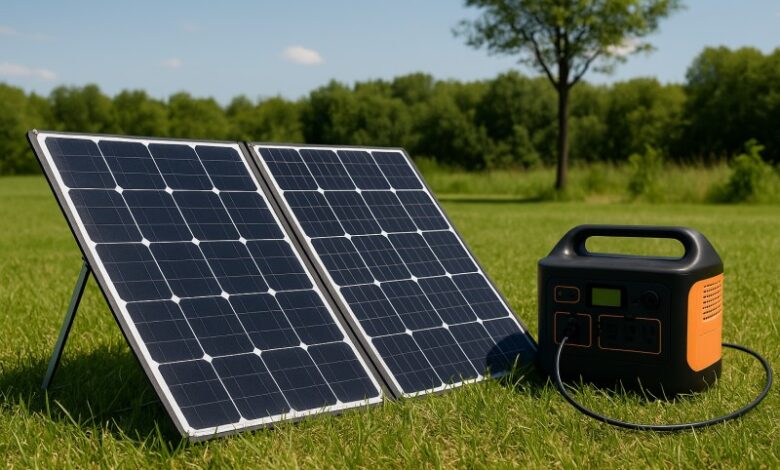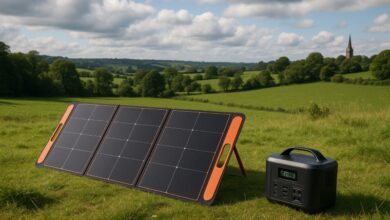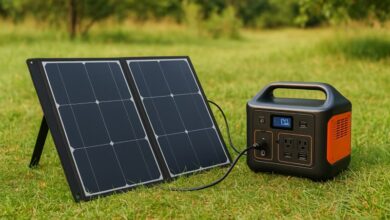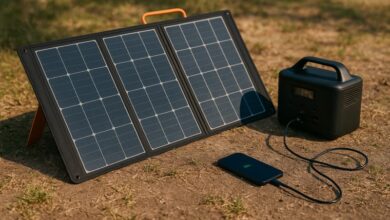Solar Panel Generators: A Sustainable Power Solution

In an era where sustainability and clean energy are top priorities, solar panel generators have emerged as a revolutionary power solution for homes, businesses, and outdoor activities. A solar panel generator is a device that converts sunlight into electrical energy and stores it in a battery for later use. Unlike traditional fuel-powered generators, solar panel generators operate quietly, emit no harmful gases, and require minimal maintenance.
How Solar Panel Generators Work
A solar panel generator typically consists of three main components: solar panels, a charge controller, and a battery with an inverter. The solar panel generator absorb sunlight and convert it into direct current (DC) electricity. This electricity flows into a charge controller, which regulates the voltage and current to prevent battery overcharging. The stored energy in the battery can then be converted into alternating current (AC) electricity through an inverter, making it suitable for powering standard household appliances.
These generators vary in size and capacity, from small, portable models designed to charge phones and laptops, to larger units capable of running refrigerators, TVs, or even powering entire homes during outages.
Advantages of Solar Panel Generators
One of the most compelling advantages of solar panel generators is their environmental impact. By harnessing energy from the sun—a renewable resource—they help reduce dependence on fossil fuels and cut down greenhouse gas emissions. This makes them an ideal choice for environmentally conscious consumers.
Another benefit is their low operating cost. After the initial purchase and installation, the energy from the sun is free. There are no fuel costs, and the maintenance required is minimal compared to traditional generators. Additionally, solar generators are quiet, making them suitable for use in residential areas or during camping and outdoor events where noise can be a concern.
Applications and Use Cases
Solar panel generators are versatile and can be used in a wide range of situations. In residential settings, they serve as a reliable backup power source during outages. They are also commonly used in RVs and boats, providing power while off-grid. For outdoor enthusiasts, portable solar generators offer a sustainable way to power electronics while camping or hiking.
In remote locations where access to the electrical grid is limited or non-existent, solar panel generators provide an essential source of power. They are also increasingly used in disaster relief efforts, where quick and clean energy solutions are necessary.
Challenges and Considerations
Despite their many benefits, solar panel generators do have some limitations. The initial cost can be higher than traditional generators, especially for larger models. They also depend on sunlight, so their effectiveness can be reduced in cloudy weather or at night, although battery storage helps mitigate this issue.
Furthermore, their capacity is limited compared to fuel-powered generators. Users need to calculate their power needs carefully and choose a generator that matches their requirements.
Conclusion
Solar panel generators represent a significant step forward in sustainable energy technology. They offer a clean, quiet, and renewable power source suitable for a wide range of applications. As solar technology continues to advance and prices decrease, these generators are likely to become an even more common and accessible energy solution for individuals and communities worldwide.



